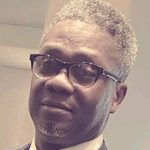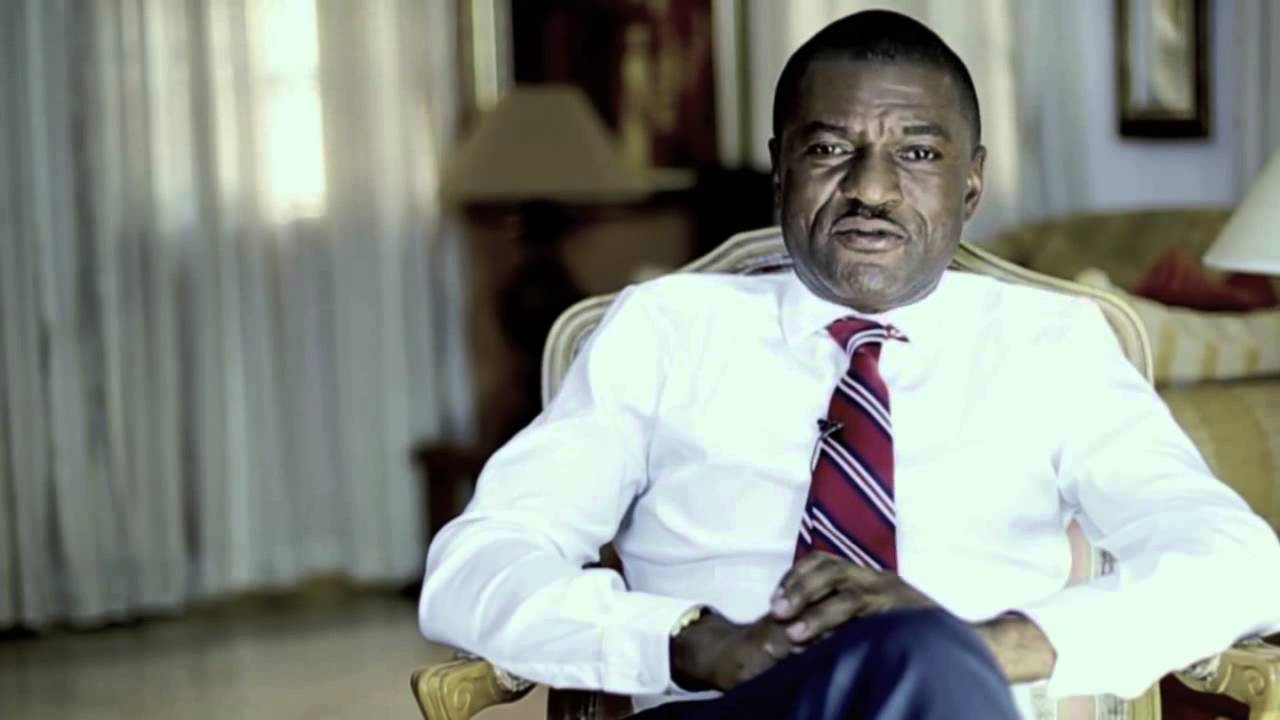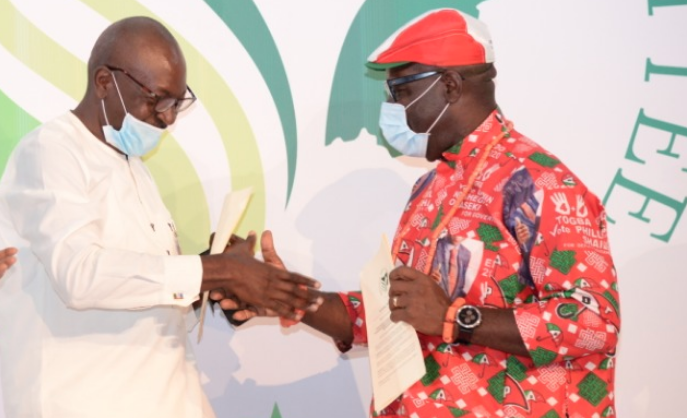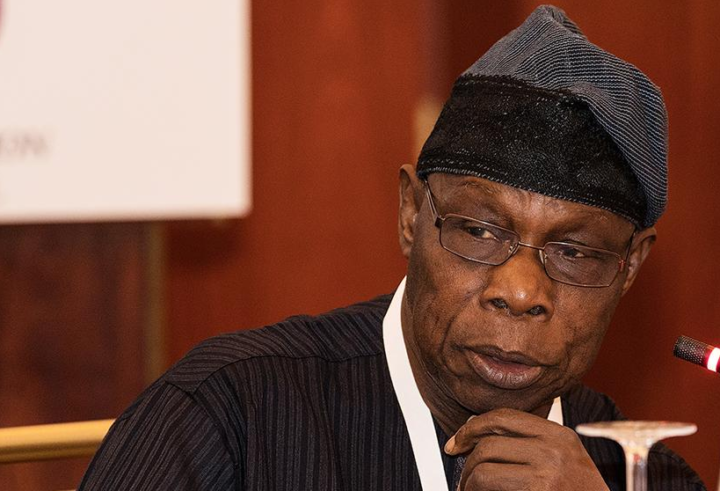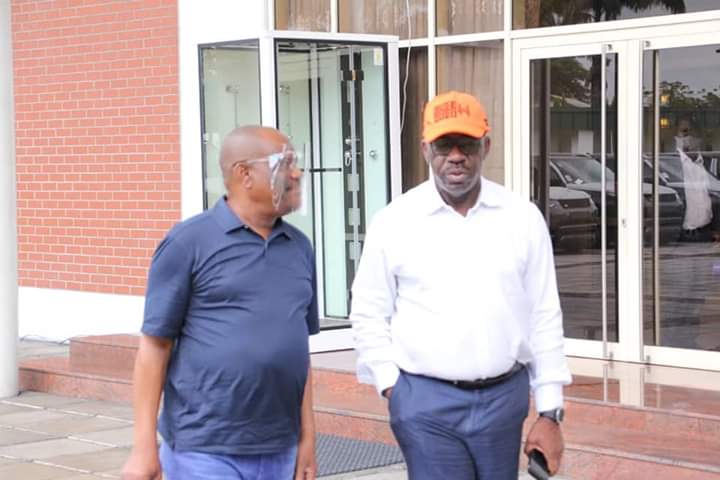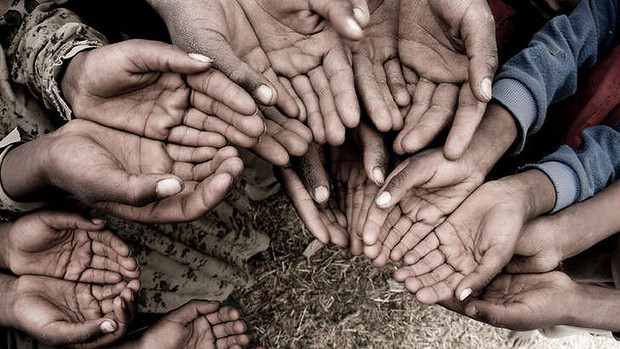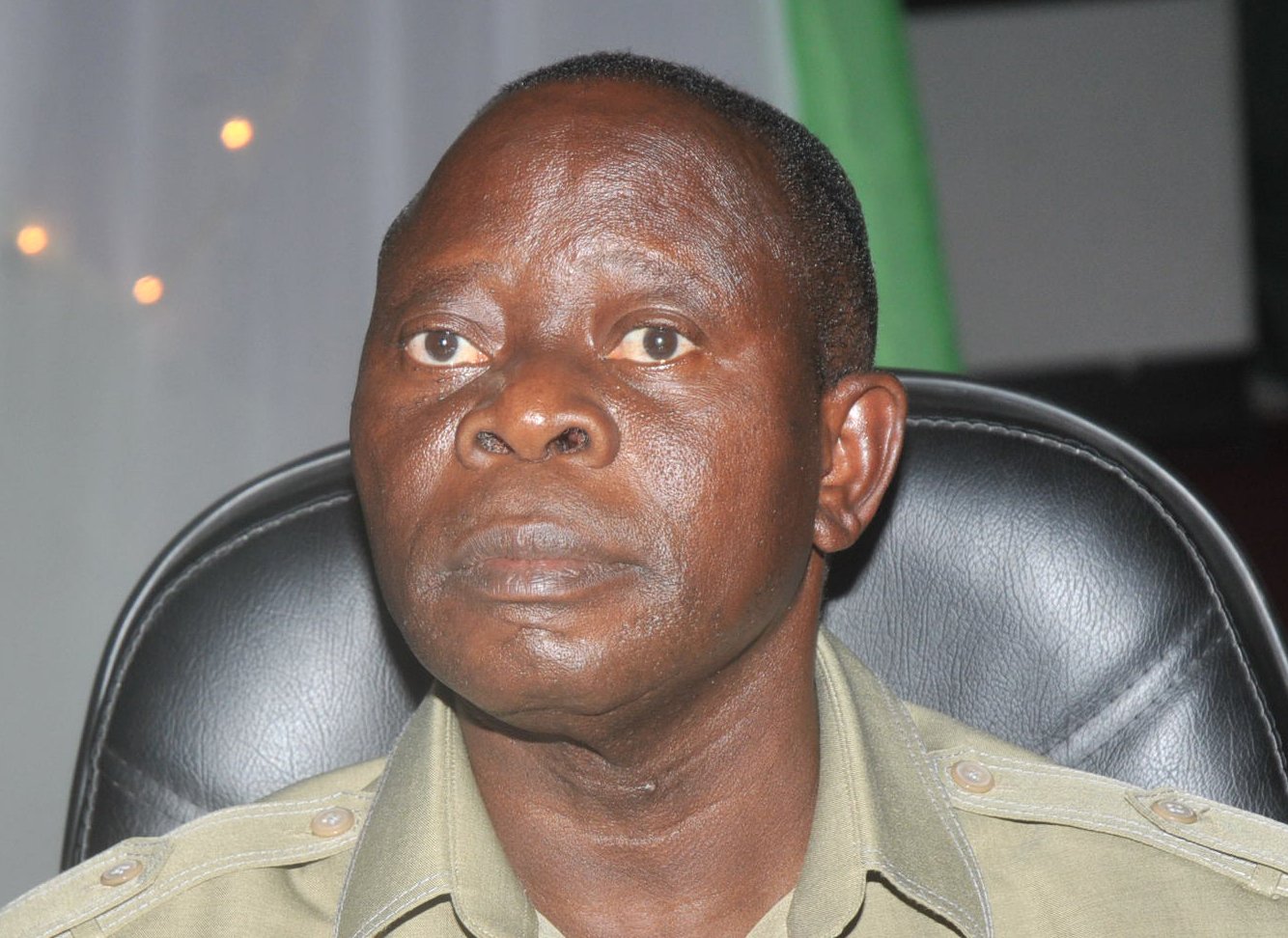Today, among other gratitudes, I thank God for adding a year to the age of a friend, brother, leader and a distinguished Nigerian patriot, HRH Oke Ifufe Frank Nweke II (Frank Nweke Jr, as he then was). We used to call him FNJ in closer circles.
FNJ’s name is preeminent on the list those who God used to reveal His grace upon my life. FNJ drove me crazy when he appointed me as his Special Media Advisor in February 2006. He was Nigeria’s Minister for Information and Communication (hitherto, Information and National Orientation). By the time his tenure was over and I looked back in self-evaluation of our outing at the Ministry, I realised FNJ had nudged me to perform tasks that qualified me to be his successor. I have heard stories of mentors and mentees but my historical meeting with FNJ in May 2004 became seminal and a critical juncture in my life.
We met a month after I defended my MA Dissertation at the University of Ibadan. It was at the National Youth Summit, I was part of the team of about 200 students and youth leaders assembled at the National Women Development Centre, Abuja to review the National Economic Empowerment and Development Strategy (NEEDS). FNJ was Minister for Intergovernmental Affairs, Special Duties and Youth Development.
After my very critical (and at the risk of self-glorification, constructive) comment on the document, FNJ ‘searched’ for me while the summit adjourned for lunch. Some of my friends and comrades had advised I should disappear because they thought I might be arrested. I thought as much too because I considered my comment as the most critical and possibly destabilising. Everybody had spoken glowingly about the NEEDS document and me too, but I proceeded to list seven issues that made the document defective. So many people were uncomfortable. However, from that moment other participants became emboldened to critique the document as I had changed the direction of the debate. But while the ‘search’ for me continued even though I was at the venue, fate made FNJ to locate me during the syndicate sessions.
Advertisement
We had a discussion and he requested my mobile number. He did not give me his and I didn’t ask for it. The programme ended and I returned to Ibadan to pack my books. Two days after, FNJ rang and courteously requested I return to Abuja. He said he had set up a 7-Man Committee to craft a youth policy. In that team is my friend and brother, Dr. Umar Tanko Yakasai. The committee worked and deliver timely. By the time our assignment was completed I was again in the group of 5 young persons sent to the Arab Republic of Egypt to represent Nigeria at the International Youth Summit that took place that year. I don’t know how other people made the list but I was FNJ’s nominee.
We buddied up and bonded, and continued to interact thereafter. Then I had to make a presentation at the International Students Festival in Norway in 2004, based on a proposal I had sent to the organisers. Frank personally picked my bill.
One day in January 2006, while I was an instructor at the International Institute of Journalism, Abuja, I visited FNJ at Radio House, he had been appointed Minister of Information and National Orientation. I visited him in company of my brother and comrade, Ezenwa Nwagwu. Then came February 2006, and there was a major challenge in the polity being a fallout of what happened in Oyo State. (I am not going to discuss the issue here). So, I sent a message to FNJ and we had a discussion thereafter. He insisted I must come on board as part of his team, and as SA Media. As soon as he said it, he sent for his Secretary and request him to send a letter to Mr. President through SGF Ufot Ekaette about what he had mentioned to me. I requested for time to consult, but FNJ refused. He then recalled my contribution at the Women Centre in 2004 and said his offer had provided a platform for me to make my views to reflect in government policies.
Advertisement
I stepped out of his office with his permission and quickly rang 3 people – Dapo Olorunyomi (one of my mentors who particularly shaped my material and intellectual disposition); the late Prof. Alfred Opubor (Nigeria’s, possibly West Africa’s first professor of Mass Communication); and Associate Professor. Olajide Ibietan (my first consanguinous brother). After the discussions, I went back to FNJ’s office and accepted the offer. When I asked when to resume, FNJ said ‘yesterday’. That day I went back to IIJ to resign my appointment, forfeiting that month’s salary as the price for short notification of resignation. The following day I resumed work at Radio House as Special Assistant on Media to the Minister of Information and National Orientation.
God willing I will capture details of what transpired at Radio House in my memoirs. I have done the above narrative to show how God can manifest His power using people to shape the destiny of others. Importantly, I owe Nigeria a duty to do this today because of our nation’s rapid descent into atavism, saddening bigotry, clannishness and nepotism. I am doing this to put on record that one man stood (and still stands) out as a great exemplar of purposeful leadership that never bothered about tribe or tongue or even religion which many of our countrymen in their religiosity devoid of godliness, have allowed to narcotise them, robbing them of informed capacity for rational reasoning.
I mean, FNJ and I have no blood relationship, except through Adam. The last time I checked, I remain a Yoruba from North Central Nigeria whereas FNJ is Igbo from South East Nigeria. FNJ appointed 3 Special Assistants while he was Minister of Information and National Orientation (later Information and Communication) but not even one of us is Igbo. Understandably, as the most visible of the Special Assistants, there were times people walked into my office and spoke Igbo. I would respond with the little proficiency I had acquired but would politely inform my visitors I do not speak Igbo beyond basic greetings and sociolects. Of course I noticed whiffs of shock in people’s countenances whenever I said that I do not speak Igbo reasonably. In the framework of a sociological imagination, the unasked question from many visitors was: “How could an Igbo guy appoint a non-Igbo to such a strategic desk?”
As I write, when you reflect on the nature of appointments officials of government at several levels have made between 2007 and now, you would easily discern that many of our so-called leaders do not have faith in Nigeria, in its stead, they are guided by very narrow, provincial, primitive and thus very divisive considerations. It is mainly the reason our nation continually failed – because leaders refused to emulate higher values as FNJ has consistently displayed. That failure explains why decades after independence, we remained a country because we couldn’t build a nation.
Advertisement
But the Frank Nweke spirit is decidedly dedicated to patriotism, irrespectivehow citizens may be circumstanced. FNJ is very ecumenical and very national – and I do not speak to Igbo nationalism even though FNJ is unashamedly Igbo. He speaks Nigeria’s 3 major languages and at home everywhere with humility. FNJ remains a hardworker, pragmatic, patriotic and an unstoppable seeker of knowledge. The reason he proceeded to Harvard University after his Ministership to seek further knowledge in public policy under the Mason’s Fellowship at the Kennedy School of Government. He returned from Harvard and fate thrust him to reposition the Nigeria Economic Summit Group as the Director General. As Minister, he was an uncommon and quintessential national reputation manager.
I will recall a few incidents to illustrate how FNJ acted in a manner that left imprints of Nigeria’s culture and pride, and also repudiated some of the perceptions people had about Nigeria. The first was at the House of Lords in the UK in 2007. Myself, FNJ and Dr. Christopher Kolade were going to the gallery to observe a proceeding about Nigeria. Several times, FNJ offered to open the door and would actually hold the door for all to go, including myself, and he would come last.
This humility was also displayed repeatedly in many places we visited during his Ministership. I recall an instance the man who used to chauffeur us around London whenever we visited, Nasir, an Egyptian Orthodox Christian, asked me on two occasions whether FNJ was truly a Minister in Nigeria. To which I responded in the affirmative. Then, Nasir said “Nigerian Ministers do not act like this in London”. Nasir went on and on to describe the behaviour of Nigerian Ministers citing large delegations, unusually long convoy of cars, grandeur, ostentation, unnecessary noise etc. as signposts of Nigerian Ministers visits to London.
Secondly, in 2006, FNJ was offered American citizenship by the State of Georgia during one of our visits but he politely declined, stating that the Nigerian citizenship sufficed. On that occasion, I remember FNJ told the audience that Nigeria held so much promise that people around the world should seek Nigerian citizenship quickly. It was during the launch of NIGERIA: THE HEART OF AFRICA project.
Advertisement
Today, we have community radio stations in Nigeria because FNJ instituted its policy drafting processes when he was Minister of Information and Communication. Nigeria would still have retained her status as the only West African (possibly African country) without the community radio culture. It was that draft policy that became a central advocacy tool for us in the Nigeria Community Radio Coalition until President Jonathan approved 17 community radio licenses in 2015.
Friends! I invite you to join me in wishing an uncommon patriot, HRH Okeifufe Frank Nweke II, a joyous birthday anniversary.
Advertisement
ONCE AGAIN, HAPPY BIRTHDAY SIR.
Advertisement
Views expressed by contributors are strictly personal and not of TheCable.
Add a comment
